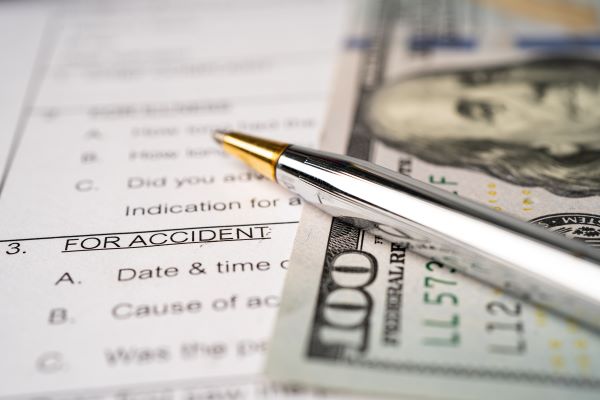After a car accident, one of the first steps you’ll need to take is filing an insurance claim. Once you’ve reported the accident to your insurer, you’ll likely be contacted by an insurance adjuster—either from your own insurance company or from the other driver’s insurer. While it may seem like a routine part of the process, dealing with insurance adjusters can be tricky, especially if you’re not familiar with how they operate.
Here’s a guide on the dos and don’ts of handling insurance adjusters after a car accident in Ohio to ensure you protect your rights and get the compensation you deserve.
Who Are Insurance Adjusters, and What Is Their Role?

Insurance adjusters are professionals hired by insurance companies to evaluate the details of a car accident, assess the extent of damage to vehicles, review medical records, and determine the compensation owed under the terms of the policy. While they may seem friendly and cooperative, their primary job is to save the insurance company money. This means they are often looking for ways to reduce the amount they pay out in claims.
Understanding the motivations of insurance adjusters is the first step in protecting yourself. Below are some essential dos and don’ts to keep in mind during this process.
The Dos of Dealing with Insurance Adjusters
1. Do Remain Calm and Polite
One of the most important things you can do when speaking with an insurance adjuster is to remain calm and polite. While the adjuster is focused on their company’s bottom line, they are more likely to work with you if you maintain a cooperative demeanor. Being rude, confrontational, or defensive can make the process more difficult and may hurt your claim.
2. Do Be Honest and Stick to the Facts
When providing information to the insurance adjuster, honesty is crucial. Give accurate details about the accident, your injuries, and the damage to your vehicle. Misrepresenting facts or exaggerating your claims can lead to serious problems later, including the denial of your claim or accusations of insurance fraud.
However, while you should be honest, it’s equally important to stick to the basic facts. Avoid speculating or providing unnecessary details, as this could be used against you. For instance, avoid saying things like, “I think I was going around 45 mph,” if you’re unsure. Stick to statements like, “I’m not sure of my speed at the time.”
3. Do Document Your Conversations
Whenever you speak to an insurance adjuster—whether on the phone or via email—take detailed notes. Record the date and time of the conversation, the name of the adjuster, and what was discussed. If any agreements or decisions are made, follow up with an email to confirm the details. Having a paper trail can be invaluable if disputes arise later.
4. Do Review Medical Records and Repair Estimates Carefully
If the adjuster asks for medical records, ensure that you only provide records relevant to the accident. Don’t hand over your entire medical history, as they might try to claim that a pre-existing condition was responsible for your injuries. Similarly, when the adjuster reviews repair estimates for your vehicle, ensure that all necessary repairs are included in their calculations.
5. Do Consider Hiring an Attorney
If your accident involves significant injuries, damages, or if the fault is disputed, consider speaking with a car accident attorney. A skilled attorney can handle communications with the insurance company on your behalf, negotiate for a fair settlement, and protect your legal rights. They can also help you understand the full value of your claim, which is especially important if you’ve suffered long-term injuries or other losses.
The Don’ts of Dealing with Insurance Adjusters

1. Don’t Admit Fault
One of the biggest mistakes people make when speaking with insurance adjusters is admitting fault for the accident. Even if you think you may have been partially responsible, Ohio follows a comparative negligence rule, which means that fault can be shared between drivers. If you admit fault, even informally, the insurance company could use your words to reduce your compensation.
Avoid statements like, “I didn’t see them coming,” or “I might have been going too fast.” Instead, stick to objective facts and leave fault determination to the investigation.
2. Don’t Accept the First Settlement Offer
It’s common for insurance adjusters to offer a quick settlement soon after an accident, especially if you’ve sustained injuries. This first offer is often much lower than what your claim is actually worth. Remember, insurance companies aim to settle claims for as little as possible.
Before accepting any settlement, carefully review it, and consider consulting with a lawyer to ensure that it covers all of your damages, including medical expenses, lost wages, and future costs related to your injuries.
3. Don’t Provide a Recorded Statement Without Legal Advice
One tactic adjusters use is asking you to provide a recorded statement about the accident. While this may seem harmless, these statements can be used against you later. Adjusters might ask leading questions to get you to admit fault or downplay your injuries.
In Ohio, you are not legally required to give a recorded statement to the other party’s insurance company. Politely decline to provide a recorded statement unless you’ve consulted with an attorney first.
4. Don’t Sign Anything Without Reviewing It
Insurance adjusters might ask you to sign forms or documents, such as a medical release form or a settlement agreement. Be extremely cautious before signing anything. By signing a medical release, you might be giving the insurance company access to your entire medical history, not just records related to the accident. This can result in them arguing that your injuries were pre-existing.
Similarly, never sign a settlement offer without thoroughly reviewing it and ensuring that it adequately covers your medical bills, car repairs, and other damages. Once you sign, you typically waive your right to seek further compensation, so it’s essential to be sure the offer is fair.
5. Don’t Rush the Process
Dealing with insurance companies after a car accident can be stressful, but it’s important not to rush the process. Take your time to review settlement offers, seek advice if needed, and make sure you understand the full extent of your injuries before agreeing to any compensation.
Conclusion: Protect Yourself When Dealing with Insurance Adjusters in Ohio
homeWhile dealing with insurance adjusters is a necessary part of the post-accident process, understanding their motivations and knowing how to interact with them can protect your claim. By following these dos and don’ts, you can navigate the claims process with confidence and ensure that you’re treated fairly. If at any point you feel overwhelmed or uncertain, don’t hesitate to contact 1Ohio car accident lawyers for help. Your rights and financial recovery are too important to leave to chance.





